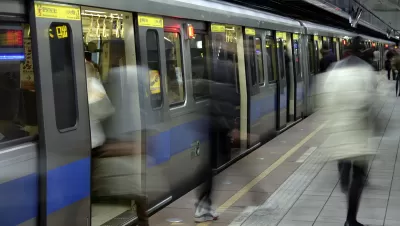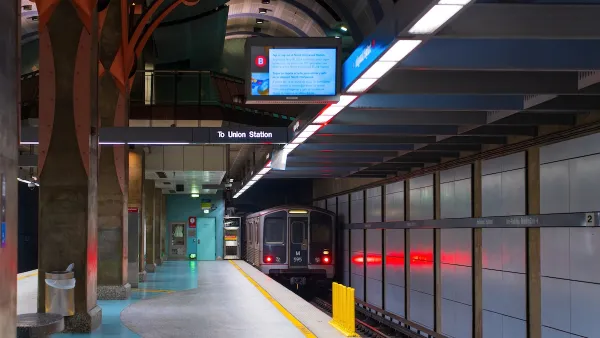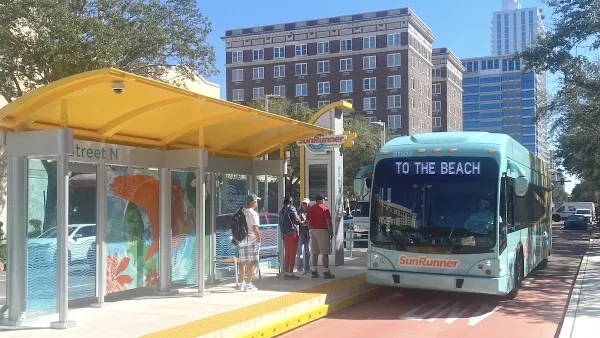Only from learning more about the choices and preferences of people who actually ride transit can transit agencies hope to better serve riders.

"Excuses abound for falling transit ridership in American cities. Transit agencies have blamed the growth of Uber and Lyft, an expanding economy, falling gas prices, and cheap car loans for recent declines in bus and rail ridership. These explanations describe real forces buffeting the nation’s transit systems, but they don’t tell the full story."
That's the premise for a post sharing new survey data from TransitCenter. The "Who's on Board 2019" report surveyed 1,700 transit riders in seven U.S. cities to ask about changing ridership habits and how transit agencies can win back riders.
The post offers insight into the changing habits of transit riders, including fewer "all-purpose riders," more competition from private cars, and low-income people moving deeper into the suburbs (and farther away from transit).
In a separate article, Angie Schmitt follows up on the report, including a few words the big idea for transit agencies trying to win back riders: better service.
FULL STORY: Who’s on Board? Riders Explain Why They’re Using Transit Less — And How to Win Them Back

Maui's Vacation Rental Debate Turns Ugly
Verbal attacks, misinformation campaigns and fistfights plague a high-stakes debate to convert thousands of vacation rentals into long-term housing.

Planetizen Federal Action Tracker
A weekly monitor of how Trump’s orders and actions are impacting planners and planning in America.

In Urban Planning, AI Prompting Could be the New Design Thinking
Creativity has long been key to great urban design. What if we see AI as our new creative partner?

King County Supportive Housing Program Offers Hope for Unhoused Residents
The county is taking a ‘Housing First’ approach that prioritizes getting people into housing, then offering wraparound supportive services.

Researchers Use AI to Get Clearer Picture of US Housing
Analysts are using artificial intelligence to supercharge their research by allowing them to comb through data faster. Though these AI tools can be error prone, they save time and housing researchers are optimistic about the future.

Making Shared Micromobility More Inclusive
Cities and shared mobility system operators can do more to include people with disabilities in planning and operations, per a new report.
Urban Design for Planners 1: Software Tools
This six-course series explores essential urban design concepts using open source software and equips planners with the tools they need to participate fully in the urban design process.
Planning for Universal Design
Learn the tools for implementing Universal Design in planning regulations.
planning NEXT
Appalachian Highlands Housing Partners
Mpact (founded as Rail~Volution)
City of Camden Redevelopment Agency
City of Astoria
City of Portland
City of Laramie





























